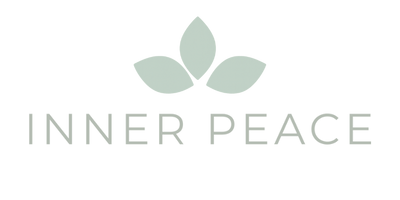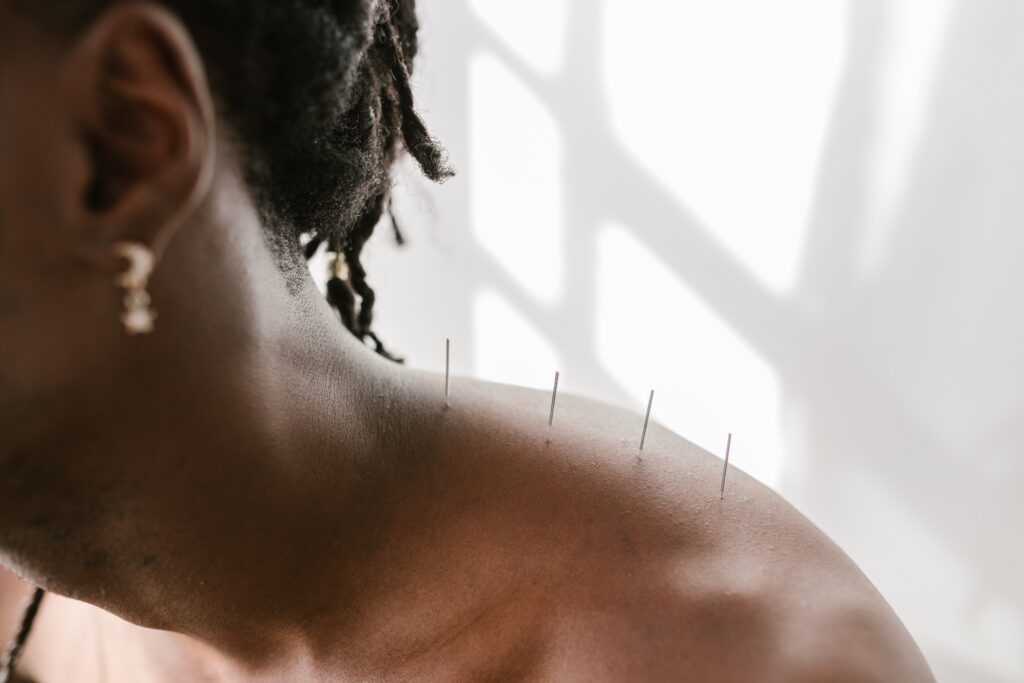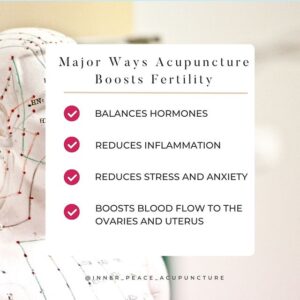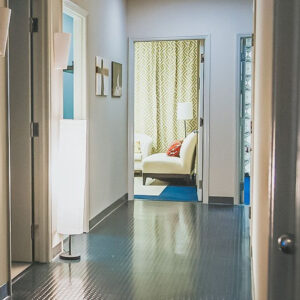You’ve made the decision…you’re going to try acupuncture. It’s been proven to be one of the most effective methods of treating infertility and helping women get pregnant naturally. But…you’re a little apprehensive about getting poked with needles and unsure if the benefit is greater than the fear.
You’re not alone. Our patients frequently ask:
- “What are acupuncture needles like?”
- “How big are the needles?”
- “How long are the needles?”
The greatest misconception about the size of an acupuncture needle is that it is the same size as those used to draw blood for lab work.
Here, we will tell you everything you need to know about an acupuncture needle so that you can be informed and put aside the fear once and for all about acupuncture needles and pain.
Acupuncture Needles are Regulated
Acupuncture needles fall under the Class II category of medical devices, which means that they require special controls for safety and effectiveness to comply with FDA regulations.
These special controls include conforming to ISO 9001 quality system requirements, labeling that includes the device’s intended use, as well as any limitations on its use, and manufacturing processes that result in needles that are sterile and free of defects. Acupuncture needles must also be registered with the FDA, and manufacturers must provide regular reporting on any issues related to the device’s safety.
Acupuncture needles are also completely sterile, each contained in its own tube. They’re also disposable which means a needle is NEVER reused even if it’s for the same person.
Acupuncturist Training
In addition to 3000 hours of education and training that includes a minimum of 950 clinical hours, acupuncturists must also be trained in the proper clean needle technique before they can become certified by the National Certification Commission for Acupuncture and Oriental Medicine (NCCAOM), as well as licensed in most states.
To meet the clean needle technique training requirements, acupuncturists must take courses on acupuncture safety and become certified in the Clean Needle Technique by the Council of Colleges of Acupuncture and Oriental Medicine (CCAO).
Acupuncture Needle Material and Size
Acupuncture needles are almost always made with stainless steel. Acupuncture needles come in a variety of lengths and gauges. The gauge of a needle refers to its thickness, while the length represents the overall distance from tip to end. The gauges typically range from 26 to 40, with smaller gauge numbers indicating thicker needles. Here at Inner Peace Acupuncture for Women, the size of the needles we use are 34-40 gauges that are either 1 inch or 1.5 inch in length.
Acupuncture needles have an average diameter of approximately 0.00325 inches, comparable to the thickness of a strand of hair.
The shorter and thinner needles are designed to penetrate soft tissue or shallow bony tissue. Longer needles are often inserted into thicker tissues, such as the abdomen and stomach regions.
Acupuncture Needles vs. Other Types
- The gauge of a hypodermic needle commonly used for blood draw is usually 21 gauge. This gauge is considered the standard and is most commonly used because it allows for quick and efficient blood collection without causing significant damage to the blood cells.
- Insulin pen needles range from 4 millimeters (mm) to 12 mm in length and 29 to 32 gauge in diameter.
- And finally, commonly used needles for subcutaneous injections during IVF are 27 gauge and 30 gauge, with lengths ranging from 3/16 inch to 5/16 inch.
Final Thoughts
As you can see, acupuncture needles are smaller than most needles used for common purposes. That is also partly because, with an acupuncture needle, the purpose is NOT to deliver a product such as insulin, gonal-F, or botox. The purpose of using needles is to redirect the flow of our vital energy, or Qi, to resolve any patterns of disharmony that may be causing health problems such as infertility.
Our patients find that the treatments are relaxing and for many, it’s the best part of their week. If you have any questions about acupuncture and how it can help you get pregnant, please do not hesitate to contact us. We’re always happy to answer any questions.





